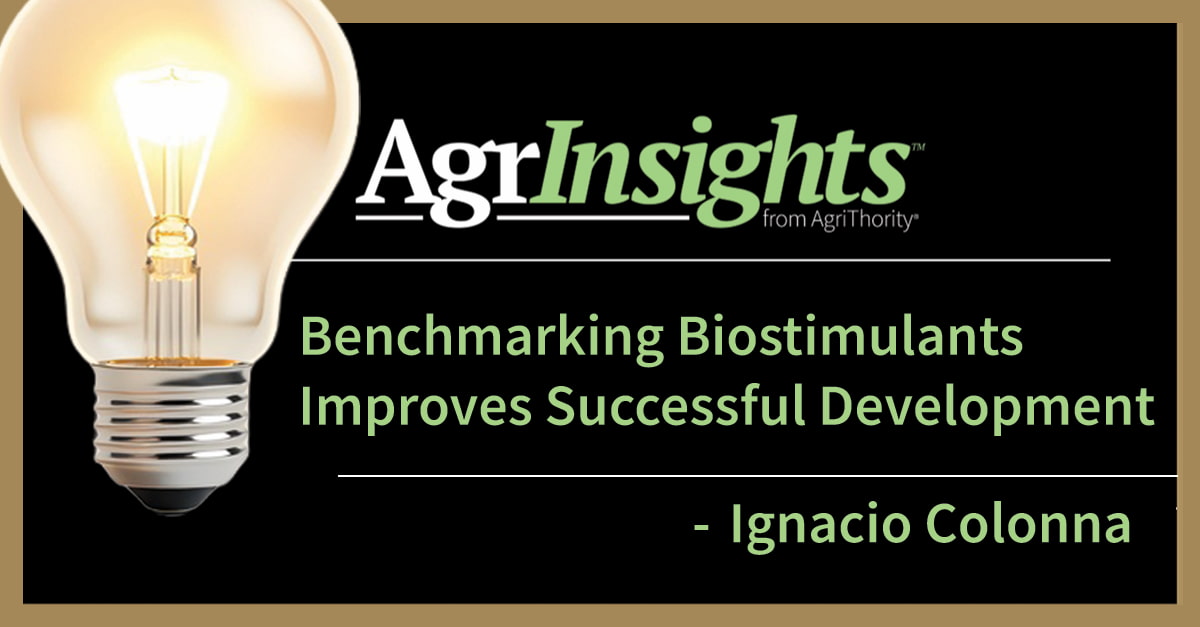The annual AgriThority® Exceed the Seed® Symposium gathers experts in soil health and seed development to address technological innovations in seed performance and soil nutrition. 2019’s Exceed the Seed® panelists focused on expansions in biologicals, soil and seed research, and upcoming regulatory challenges facing newly developed technologies. Dr. Gloverson Moro, Director of Global Product Development at AgriThority®, kicked off the 2019 Exceed the Seed® Symposium with a presentation titled “Seed: The Science Ecosystem.” Dr. Moro highlighted the connectivity between seed-related disciplines and particular sub-fields gaining prominence in the agricultural market. The following is a summary of his presentation.
The Science Ecosystem around Seeds
Seeds are the most basic input in agriculture. Scientists have invested considerable effort into developing superior-performing germplasm. Modern labs are capable of genetically customizing seeds by promoting discrete changes to the genotype through genome editing. However, only modifying the genes of germplasm is an insufficient and over-simplistic approach to improving crop performance.
Attention has shifted to studying external aspects that can limit the full expression of a seed’s genetic value and its translation into a higher-yielding crop. Researchers are progressively combining unprecedented knowledge in genome sequencing, phenotype measurements, and environmental facets to further optimize the value of seeds. For example, such multidisciplinary information is now used to produce computer models that can further increase the genetic value of seeds.
Like an ecosystem, these disciplines are closely correlated and should be seen as parts of a holistic whole. Progress in each field will change the overall understanding of seed performance. Product development in the following categories within this seed science ecosystem is especially anticipated for the future agricultural market.
Seed Protection
Seeds, like any living organism, are a food source for pathogens and insects. Protection against harmful agents is needed for seeds to perform well. Topical treatments to aid seed immunity and kill pests have traditionally been chemical. However, biological solutions are becoming more available on the market. Farms will soon combine chemical and biological solutions to treat their fields. The combination of chemicals and biologicals will require a new look into formulations, as well as on the delivery method, aimed to enhance their combined efficacy.
Seed Health
The health of the seed must be maintained and improved to yield the best crops. Research attention has gathered on investigating what nutritional supplements will enhance the output of each seed type. Like feeding a competitive athlete, high-performance seeds must be nourished differently than regular crops. As with seed protective products, innovation in biologicals are providing farmers with alternatives to chemical-based nutriments. Progress in biostimulant and biofertilizer quality reflects the growing consensus that nurturing soil health will translate to better seed performance.
Digital Technologies
In the coming years, data will become the commodity that moves agriculture. The ability to process and utilize crop information is becoming more democratized as advances in technology make data collection tools further accessible for individual farmers. Gathered data can be converted into computer models that can help elevate seed performance to a new level.
The digital element is revolutionizing the dynamic between growers, distributors and retailers. Software development in this field will transform the entire farm-to-plate pipeline.
As research approaches and technological strategies for seed improvement transform, so does the agricultural marketplace. At AgriThority®, we strive to guide our clients through this changing business sector and bring their innovative products to the table as efficiently as possible. For more info, visit ExceedTheSeed.com
—
Chihiro Kai, Content and Editorial Intern at AgriThority®, is double majoring in Journalism and Evolutionary Biology, Ecology and Organismal Biology at the University of Kansas.


